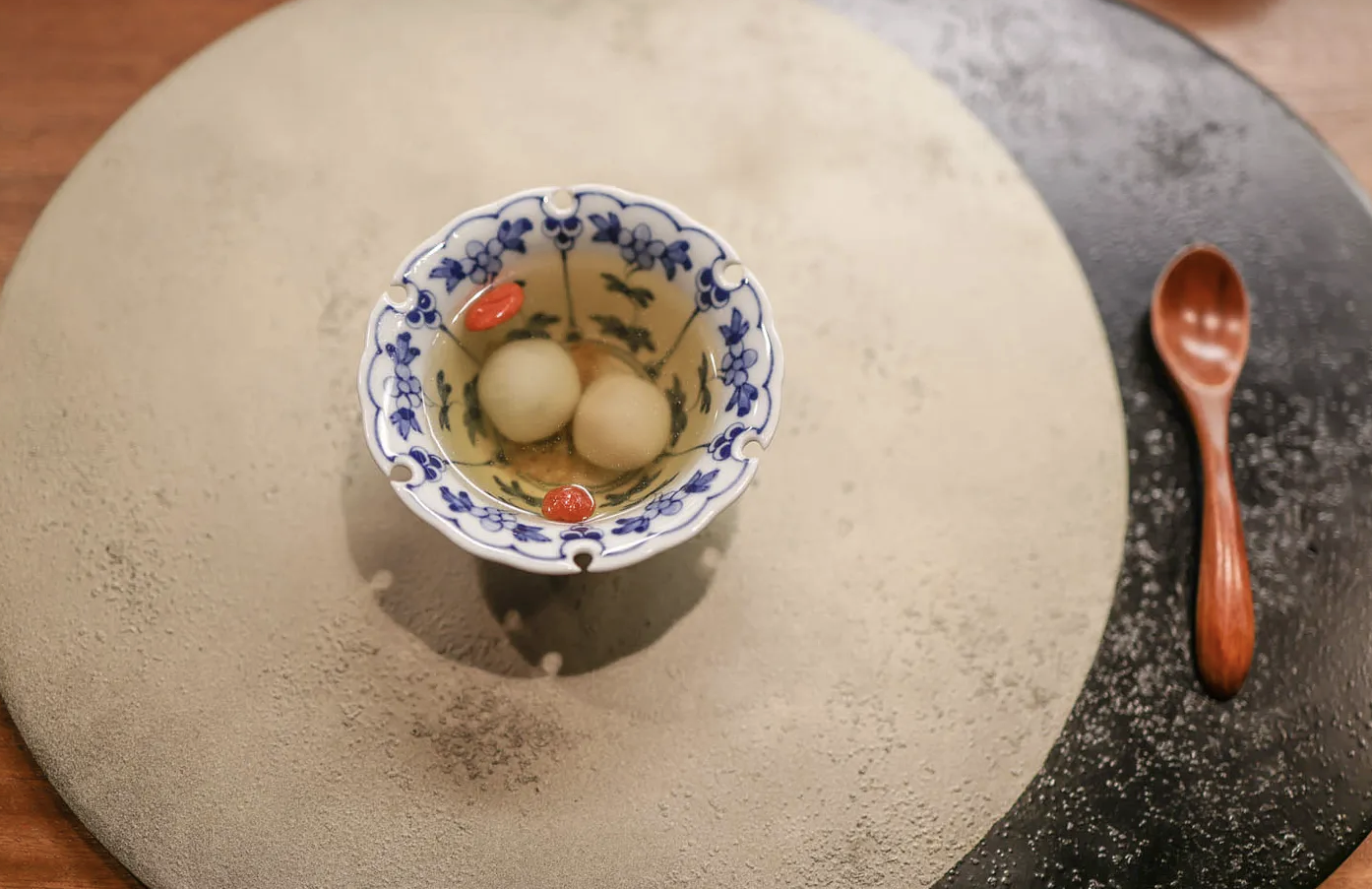
We obsess about every kind of food in the Bay Area, but the knish (pronunciation: k?-n?sh) hasn’t gotten enough respect. This doughy, flaky potato snack has its roots in Eastern Europe and Jewish cultures, knish being a Yiddish word, translating to dumpling or “a kind of bun.”

This dumpling-like bun is set for revival, with a nod to what just might be a Jewish deli renaissance: Wise Sons and now brand new Shorty Goldstein’s, the latter selling three potato knishes for $7, divinely doughy knishes with a mashed potato-like softness – my favorites in town if you can get them before they sell out each day.
Two chefs are either focused solely on the knish (King Knish), or are serving an array of Eastern European-influenced baked goods, including traditional knish (20th Century Cafe). Typically encased in flaky dough, filled with the likes of potato, ground meat, sauerkraut, cheese, then fried, baked or grilled, knishes first appeared in New York bakeries and delis in the early 1900’s. Consider the knish a cousin of the Polish pierogi or Russian pirozhki.
My early knish experiences were relegated to New York, with a few forays in Chicago. No surprise: as they revive here, ingredients are elevated, sometimes with a saucy twist (chocolate dipped curry, maybe?) In the case of 20th Century, there’s much to love across the baked goods front, pulling from Austro-Hungarian influences, one of the great baking regions of the world.
20th CENTURY CAFE

Fiery red hair, retro style, and vintage aprons: Pastry Chef Michelle Polzine buzzes about with her kitchen staff, dressed in 1940’s-1950’s dresses (my scene entirely), during a recent Sunday run at State Bird Provisions, a “sneak preview bake sale” of her upcoming 20th Century Cafe slated to open in Hayes Valley this April. Polzine’s passion for baking is apparent in the artful deliciousness of her food (Bon Appetit’s recent interview is a sweet read). Her SF cooking history includes stints at now-shuttered Bacar, Delfina, Chez Panisse, and Range.

Polzine credits Hili Revzan, her assistant at Range where she worked for seven years, for introducing her to Hungarian baking. Hooked from then on to Eastern European baked goods, she experimented with traditional recipes, traveled to Prague, Vienna, and Budapest (a region I have fond memories of traveling through). Her vision for 20th Century Cafe is, according to Bon Appetit, to “do a sort of a mini grand cafe, like those in the former Austro-Hungarian Empire, but with everything made in-house.”

Trying an array of visually striking baked goods, there are numerous treasures, supreme among them, the tarts. Paper thin slivers of rhubarb illuminate a rosy pink rhubarb tart ($6), tart and sweet simultaneously. A savory sauerkraut tart ($7) confirms it: I want more of Polzine’s kraut, which she works to perfect. Sweet and vinegary, it sits happily atop a flaky, thin dough with duck prosciutto and apples, recalling the glories of Alsatian flatbread… and begging for a white Alsace wine.

Poppy seed rugelach ($2) is blessedly less dry and more flavorful than many rugelach I’ve been subjected to at traditional bakeries. Little dark chocolate cookies ($2) explode with the tart of Buddha’s hand citrus. Only Russian coffee cake ($5) was a tad dry, but for a couple juicy huckleberries. As for the potato knish ($3)? These are classic, straightforward (i.e. heartwarming) knishes. Inside, Yukon gold potatoes, garlic and onions are lush with butter, topped with poppy seeds.
We are not without an impressive amount of world class bakeries in San Francisco. Polzine smartly brings a fresh angle to a saturated market: a retro, Austria-meets-Hungary-meets-San-Francisco bakery. Thankfully, April is just around the corner.
KING KNISH

King Knish first appeared on my radar at the New Taste Marketplace in St. Gregory’s on Potrero Hill, recalling a Middle Eastern food market in its art-filled, bustling space. The chef behind King Knish is Ramni Levy, who also runs Ramni Levy Catering & Events. Chatting with him even briefly, it’s clear he’s enthusiastic about food. Living in my other two top US cities, New Orleans and New York, before moving to San Francisco in the late ’90’s, Chef Levy once ran Bistro 1650 in the Richmond District, which he sold in 2005, catering ever since.
It requires some effort to track down King Knish: place an order here (you can go as small as a dozen at $5-7 each or mini knishes for cocktail parties), or catch him this weekend, March 17, at Hazon Jewish Food Festival. Besides tender texture in a pretty, little package, the joy of King Knish is how Levy circumvents the traditional. His sell-out knish (rightly so) is filled with pastrami. Enough said. If you happen upon the pastrami knish, snatch it up. My other recommend is meat-laden: a curry beef and potato knish. Savory and doused in poppy seeds, it makes a supreme snack.

Subtle wasabi permeates a potato knish topped in crumbled, crystallized ginger, or potato intermingles with caramelized onions and mushrooms. Levy’s mango chutney and berry compotes are sold by the jar ($7.50-15), vibrant contrasts to mild potato knishes. For those like myself who swoon over sweet and savory combinations, one option is the wasabi-ginger-potato knish dipped in dark chocolate or the beef curry knish in white chocolate (!) There’s also a sweet potato-marshmallow-pineapple-almond knish I’m curious to try.
Levy’s playfulness works, as any great ethnic food mashup does (Korean tacos, Indian burritos, etc…), in subverting the expected and stretching the boundaries of a beloved traditional food… but still making it taste good.
